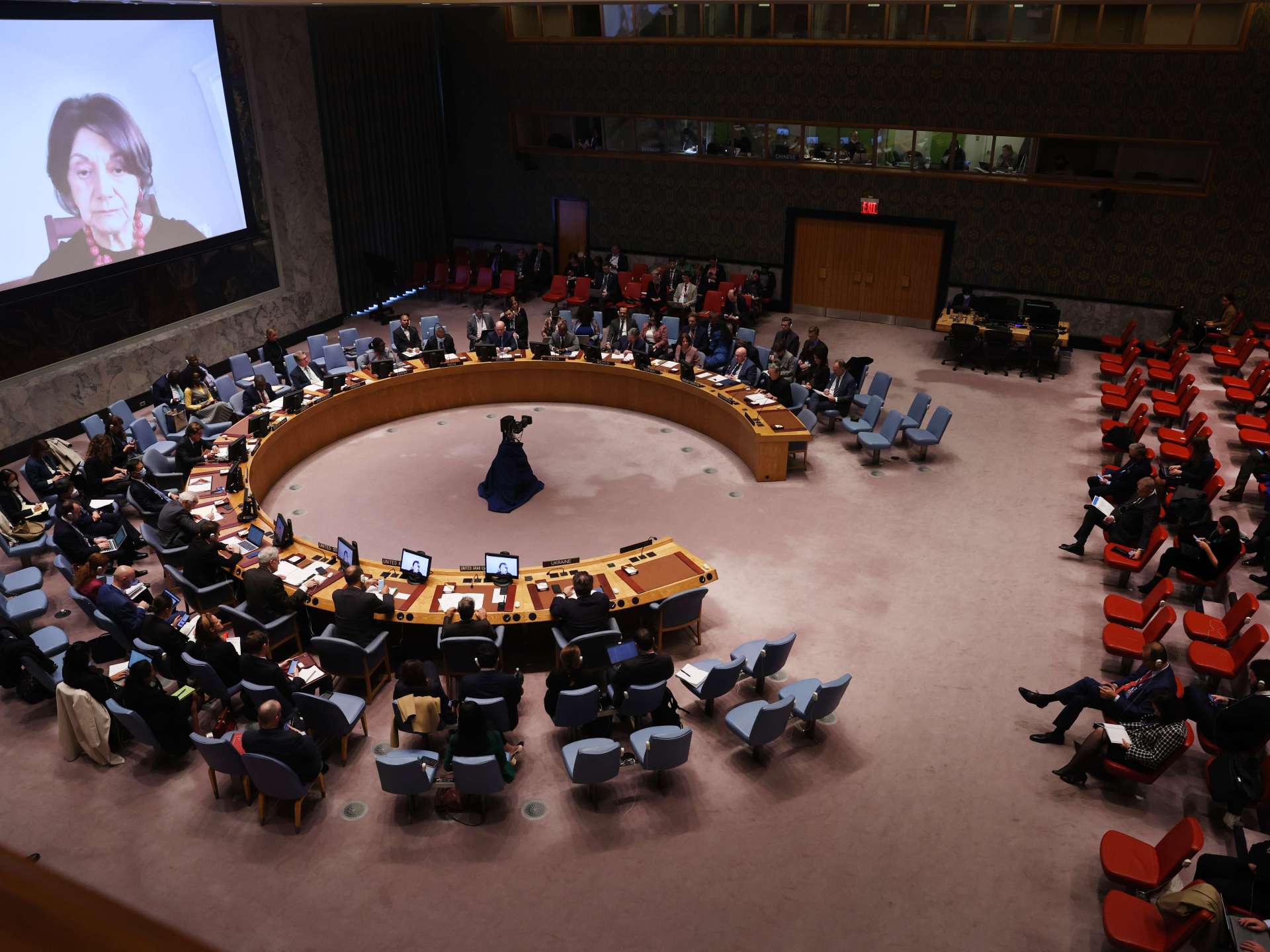The Arab and Islamic countries called on the UN Security Council to issue - during its scheduled meeting today, Thursday, on the Palestinian issue - an explicit condemnation of the storming of the extremist Israeli Minister of National Security Itamar Ben Gvir the day before yesterday in the courtyards of Al-Aqsa Mosque, a storming that sparked a wave of widespread international condemnation.
"It is the responsibility of the international community to decide to preserve and protect the historic status quo in Jerusalem and its Islamic and Christian sites," the Palestinian delegate to the UN, Riyad Mansour, told reporters at the United Nations headquarters in New York, surrounded by dozens of Arab and Muslim ambassadors to the organization.
"We want this behavior (in the courtyard of) Al-Aqsa Mosque not to be repeated again, and we want a guarantee that the status quo (in the holy places in Jerusalem) will be respected with actions, not just words," the Palestinian delegate added.
Preparatory meeting
Mansour's statement came after a preparatory meeting held by his Arab and Muslim counterparts yesterday with the rotating president of the Security Council, the Japanese representative Kimihiro Ishikani, who will preside over the Council meeting this afternoon at 3:00 pm New York time (8:00 pm GMT) to discuss "the situation in the Middle East, especially the Palestinian issue."
Riyad Mansour: We want a guarantee that the status quo in the holy places in Jerusalem will be respected by deeds, not words (Reuters)
Representatives of the Organization of Islamic Cooperation, the Non-Aligned Movement, and the Committee on the Exercise of the Inalienable Rights of the Palestinian People also participated in the meeting.
Discussions at the meeting centered on Arab and Islamic resentment over the storming of the courtyards of Al-Aqsa Mosque, the countries' expectations of the Security Council, and logistical details related to the council's emergency session that will be held today at the request of a Palestinian-Jordanian.
The Jordanian UN ambassador, Mahmoud Daifallah Hammoud, described Ben Gvir's storming of the Al-Aqsa courtyards as "an extremist act that is likely to result in a new cycle of violence."
For his part, Stephane Dujarric, spokesman for the Secretary-General of the United Nations, said yesterday that Secretary-General Antonio Guterres "calls on all parties to refrain from taking measures that could increase tension in and around Jerusalem."
The United Nations stressed the day before yesterday "the importance of preserving the status quo in the holy places."
international positions
Yesterday, Turkish Foreign Minister Mevlut Cavusoglu stressed - during a call to his Israeli counterpart Eli Cohen - Ankara's rejection of the "provocative" behavior of the Israeli Minister of National Security towards Al-Aqsa Mosque.
The German government also described the storming of Al-Aqsa Mosque as provocative, and called on Israeli Prime Minister Benjamin Netanyahu to abide by the status quo of the holy sites.
Washington also expressed its opposition to any unilateral measures that undermine the status quo in the holy sites in Jerusalem.
The European Union criticized Ben Gvir's visit to what he called a disputed holy site in Jerusalem, and the German news agency quoted a spokesman for the European Union's foreign policy official, Josep Borrell, as saying that the EU countries are concerned about the steps that conflict with preserving the status quo of the holy sites.
Cemetery desecration
A Palestinian source told Al-Jazeera that the Security Council session will discuss the vandalism and desecration committed by settlers in the cemetery of the Evangelical Church in Mount Zion in occupied Jerusalem.
Footage recorded by surveillance cameras showed two settlers throwing large stones at the graves, breaking their tombstones and turning a cross last Sunday.
According to Israeli media reports, unidentified "terrorists" attacked the cemetery and damaged more than 30 tombstones.

